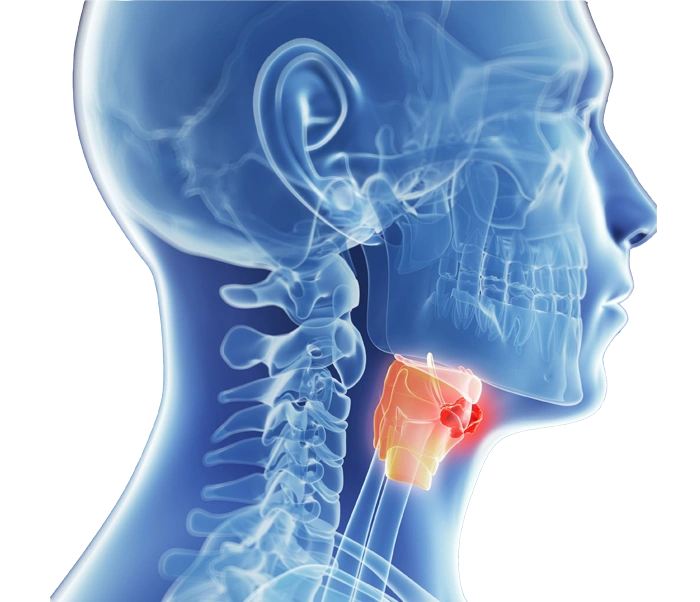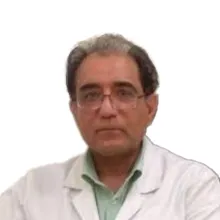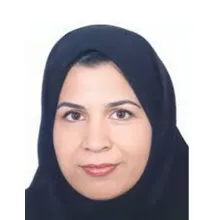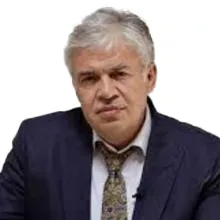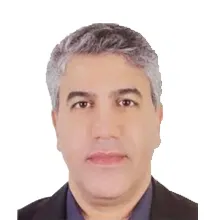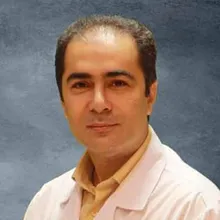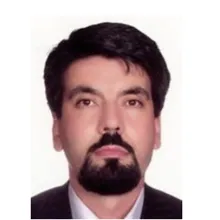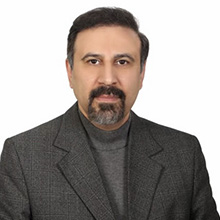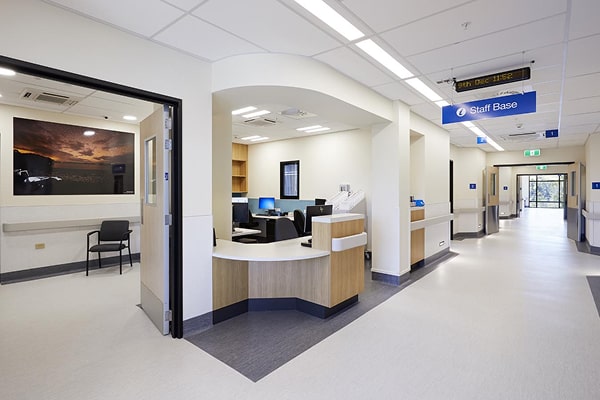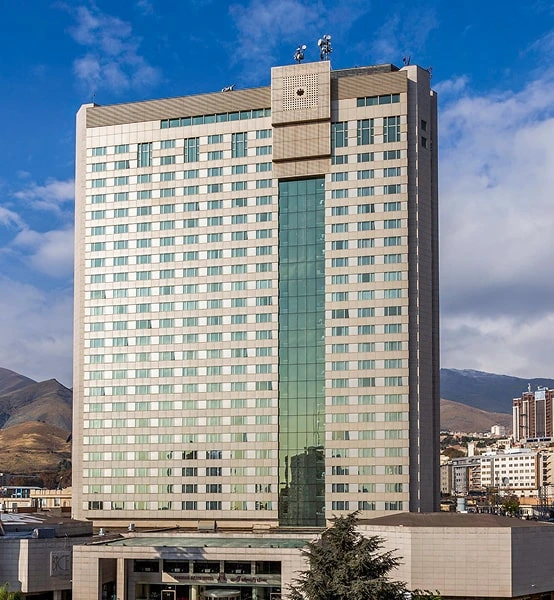Comprehensive Article on Laryngeal Cancer Treatment
Introduction: Laryngeal cancer is a type of cancer that occurs in the larynx (the middle part of the throat that helps produce sound and control breathing). The larynx is typically composed of three main parts: the upper part that includes the trachea, the middle part containing the vocal cords, and the lower part that aids in swallowing and breathing. Laryngeal cancer usually appears as tumors in these parts. In most cases, laryngeal cancer starts in the vocal cords, which is referred to as “upper laryngeal cancer.” If untreated, it can spread to other parts of the larynx and even to the lymph nodes.
Laryngeal cancer can significantly impact a person’s life, especially in the areas of speaking, swallowing, and breathing. Although this disease is relatively rare compared to other cancers, early diagnosis and appropriate treatment offer high survival and recovery rates. This article will explore the causes, symptoms, diagnostic methods, and available treatments for laryngeal cancer.
Causes and Risk Factors for Laryngeal Cancer: Laryngeal cancer is typically caused by genetic changes in the cells of the larynx, leading to uncontrolled growth. These changes can result from various factors, including lifestyle and environmental influences. Below are the main risk factors for laryngeal cancer:
- Tobacco use (cigarettes and hookah): Smoking is known as one of the primary risk factors for laryngeal cancer. The chemicals in tobacco smoke can cause cellular changes in the larynx, increasing the risk of cancer.
- Alcohol consumption: Excessive alcohol consumption, particularly when combined with smoking, can significantly increase the risk of laryngeal cancer.
- Viral infections: Human papillomavirus (HPV) is one of the factors that can play a role in the development of laryngeal cancer. This virus, especially in different areas of the body, including the larynx, can cause benign or malignant tumors.
- Exposure to chemicals and pollutants: Individuals exposed to chemicals, industrial dust, or asbestos are at a higher risk of developing laryngeal cancer.
- Family history: Individuals with a family history of laryngeal cancer are more likely to develop the disease.
- Age and gender: Laryngeal cancer is more common in men over 50 years old.
- Throat diseases and chronic infections: Having chronic problems in the throat, such as inflammatory laryngeal diseases and chronic laryngitis, can increase the risk of laryngeal cancer.
Symptoms of Laryngeal Cancer: The symptoms of laryngeal cancer may initially be mild and gradually develop. These symptoms include the following:
- Changes in voice: One of the primary symptoms of laryngeal cancer is changes in the person’s voice. A hoarse or rough voice, or even the complete loss of the ability to speak, may indicate the presence of cancer in the larynx.
- Chronic pain or sore throat: Pain or a dry sensation in the throat that persists for an extended period can be a sign of laryngeal cancer.
- Difficulty swallowing: The individual may feel that food is difficult to swallow or experience a sensation of choking.
- Breathing difficulty: Shortness of breath or a feeling of suffocation due to laryngeal obstruction is one of the symptoms of this cancer.
- Lump in the neck: If the cancer spreads to the lymph nodes in the neck, the person may feel a swollen lump in their neck.
- Weight loss and fatigue: In the advanced stages of cancer, the individual may experience unexplained weight loss and severe fatigue.
- Persistent cough: Chronic coughing that does not respond to typical treatments is also a common symptom of this disease.
Diagnostic Methods for Laryngeal Cancer: To diagnose laryngeal cancer, doctors use various methods, including:
- Physical examination and medical history: The doctor first reviews the patient’s medical history and evaluates the symptoms. A physical exam helps the doctor identify any abnormal lumps or other cancer signs.
- Laryngoscopy: Laryngoscopy is a procedure in which the doctor uses a flexible tube inserted through the mouth to examine different parts of the larynx and look for any changes or tumors.
- Biopsy: If the doctor suspects cancer, a sample of the suspicious area is taken to examine the cellular tissue under a microscope.
- Imaging: Imaging methods such as CT scan, MRI, and PET scan are used to determine the size and location of the tumor and to check whether the cancer has spread to other parts.
Treatment Methods for Laryngeal Cancer: The treatment of laryngeal cancer depends on the stage and location of the tumor. Generally, treatments can include surgery, radiotherapy, chemotherapy, and targeted therapies.
- Surgery: Surgery is one of the main treatments for laryngeal cancer. Depending on the location and size of the tumor, various surgical methods may be used:
- Tumor removal surgery: If the cancer is limited to a specific area of the larynx, surgery is performed to remove the tumor.
- Laryngectomy (removal of the larynx): If the cancer has spread to other parts of the larynx, complete removal of the larynx may be necessary. This surgery can lead to significant changes in the person’s life, including the need for specialized respiratory devices.
- Radiotherapy: Radiotherapy is a common treatment for laryngeal cancer. This treatment uses high-energy radiation to destroy cancer cells. It is usually used in the early stages of cancer and after surgery to eliminate any remaining cancerous cells.
- Chemotherapy: Chemotherapy is particularly useful in cancers that have spread to the lymph nodes or other parts of the body. Chemical drugs can destroy cancer cells throughout the body.
- Targeted therapies: Targeted therapies involve drugs that specifically target cancer cells without harming healthy cells. This treatment is especially effective in treating advanced or resistant cancers.
- Immunotherapy: Immunotherapy is a new approach that enhances the body’s immune system to help it fight cancer cells. This method is particularly effective for advanced cancers that are resistant to standard treatments.
Post-Treatment Care: Post-treatment care is crucial. After surgery or other treatments, the patient may need rehabilitation and recovery to improve the function of the larynx. This process can include speech therapy, dietary changes, the use of respiratory devices, and psychological counseling.
Conclusion: Laryngeal cancer is a serious condition that requires early detection and prompt treatment. With various treatment options, such as surgery, radiotherapy, chemotherapy, and targeted therapies, many patients can overcome the disease and improve their quality of life. Especially in advanced cases, medical and psychological support after treatment is of great importance.
Proper Nutrition
Introduction
Proper nutrition is one of the fundamental pillars of a healthy life. Although genetics and lifestyle can influence an individual’s health, nutrition is recognized as one of the vital factors for maintaining health, preventing diseases, strengtheni
ng the immune system, and even treating certain illnesses. The human body requires a specific combination of nutrients to perform various activities, and these nutrients must come from diverse food sources.
Proper nutrition not only helps maintain the overall health of the body but also has positive effects on disease prevention, improving medical conditions, and enhancing the quality of life. In this article, we will explore the importance of proper nutrition, its principles, and how nutrition impacts individual health.
Importance of Proper Nutrition
Proper nutrition means consuming a balanced and healthy diet that meets all of the body’s needs for growth, maintaining different functions, and preventing diseases. Since the body requires energy, vitamins, minerals, proteins, fats, and carbohydrates for various activities, a correct diet must provide these nutrients in adequate amounts. Here are some of the benefits of proper nutrition:
- Disease Prevention: Proper nutrition can prevent chronic diseases such as type 2 diabetes, cardiovascular diseases, high blood pressure, various cancers, and digestive issues.
- Strengthening the Immune System: A diet rich in vitamins and minerals such as vitamin C, vitamin D, zinc, and iron can help strengthen the immune system, making the body more resistant to infections and illnesses.
- Weight Management: Proper nutrition helps maintain a healthy weight and prevents overweight or obesity, which is one of the key factors in disease prevention.
- Increased Energy and Improved Mental Function: Consuming the right nutrients provides energy to the body and improves cognitive function and memory.
- Maintaining Healthy Skin and Hair: Proper nutrition helps in maintaining healthy skin and hair. Some nutrients like vitamin E and omega-3 fatty acids help keep skin healthy and hair strong and shiny.
Principles of Proper Nutrition
To have a healthy diet, attention should be given to the appropriate combination of foods that provide all the essential nutrients the body needs. Here are a few key principles of proper nutrition:
- Variety in Food: No single food group can meet all the body’s needs. Therefore, a diverse diet should be followed, including proteins, carbohydrates, fats, vitamins, and minerals. Variety allows the body to receive all the necessary nutrients.
- Consumption of Fruits and Vegetables: Fruits and vegetables are rich in vitamins, minerals, fiber, and antioxidants, which help strengthen the immune system and prevent diseases. It is recommended to consume at least five servings of fruits and vegetables daily.
- Consuming Quality Proteins: Protein is essential for tissue growth and repair, enzyme and hormone production, and strengthening the immune system. Quality protein sources include white meats like chicken and fish, legumes, eggs, dairy products, and nuts.
- Complex Carbohydrates: Carbohydrates are the primary energy source for the body. Choosing complex carbohydrates like whole-grain bread, brown rice, and sweet potatoes instead of simple carbohydrates (like sugar and white flour) is crucial for stable energy levels.
- Healthy Fats: Fats play an important role in brain function, the absorption of fat-soluble vitamins, and maintaining healthy skin. Trans fats and saturated fats should be avoided, and healthy fats like those found in fish, avocados, and vegetable oils such as olive oil should be consumed.
- Adequate Hydration: Drinking enough water is essential for maintaining the body’s functions. Water helps with digestion, transporting nutrients, regulating body temperature, and removing toxins. It is recommended to drink at least eight glasses of water daily.
Proper Nutrition in Disease Prevention
Proper nutrition plays a vital role in preventing many diseases. Some diseases that can be prevented through proper nutrition include:
- Cardiovascular Diseases: Excessive consumption of unhealthy fats, salt, and sugar can increase the risk of cardiovascular diseases. A diet rich in fruits, vegetables, whole grains, and fish can help maintain heart health.
- Type 2 Diabetes: Proper nutrition can help prevent type 2 diabetes. Replacing simple carbohydrates with complex carbohydrates and limiting sugar intake can help control blood sugar levels.
- Cancer: Research has shown that proper nutrition can help prevent specific types of cancer, such as colorectal, breast, and prostate cancer. Foods rich in antioxidants, fiber, and omega-3 fatty acids can reduce the risk of cancer.
- Digestive Problems: Sufficient fiber intake from fruits, vegetables, and whole grains aids digestion and reduces the risk of digestive problems like constipation and bowel diseases.
Proper Nutrition in the Treatment of Certain Diseases
Proper nutrition can also play an important role in the treatment process of many diseases. For example, in the treatment of conditions like cancer, diabetes, and heart diseases, proper nutrition can accelerate recovery and reduce the side effects of medications. Some examples include:
- Cancer: In cancer patients, proper nutrition can strengthen the immune system and help prevent weight loss and muscle weakness. Consuming quality proteins, fruits, vegetables, and nutrients rich in antioxidants can help improve the overall health of the patient.
- Diabetes: For individuals with diabetes, the diet must be regulated to maintain normal blood sugar levels. Consuming fiber, limiting sugar and unhealthy fats, and eating small, frequent meals throughout the day can be effective in managing diabetes.
- Heart Diseases: Eating healthy fats, fruits, vegetables, and reducing sodium and sugar intake can help reduce the risk of heart disease.
Conclusion
Proper nutrition not only helps maintain overall body health but also plays a critical role in the prevention and treatment of diseases. By following the principles of proper nutrition, many diseases can be prevented, and quality of life can be enhanced. For optimal health, it is best to align your diet with balanced nutrition principles and consult nutrition experts to create a suitable meal plan.
The Role of Counseling and Psychologists in Laryngeal Cancer Recovery
Introduction
Laryngeal cancer is a complex disease that not only affects the body physically but also has psychological and emotional effects on the individual. In addition to medical treatments such as surgery, chemotherapy, and radiotherapy, psychological counseling and emotional support play a crucial role. Patients with laryngeal cancer often face mental health challenges such as anxiety, depression, stress, and fear of death. This article explores the role of counseling and psychologists in improving the recovery process from this disease.
Psychological Impact of Laryngeal Cancer on Patients
The diagnosis of laryngeal cancer, due to changes in the ability to communicate and the body’s normal functions, can cause significant psychological stress for patients. Some of the psychological and emotional issues patients may face include:
- Anxiety and Fear: Patients with laryngeal cancer may worry about medical treatments, the recovery process, and long-term outcomes. The fear of losing the ability to speak and changes in communication abilities can also contribute to their anxiety.
- Depression: A cancer diagnosis and the start of treatment can lead to feelings of hopelessness, sadness, and depression. Some patients may feel that their lives have completely changed and they are unable to cope with these changes.
- Social Isolation: Many patients, due to speech difficulties and the need for complex treatments, may withdraw from social interactions. This social isolation can contribute to increased feelings of loneliness and depression.
- Difficulty Accepting Physical Changes: Physical changes resulting from treatments, such as loss of voice or changes in appearance, can negatively affect a patient’s self-esteem.
The Role of Counselors and Psychologists in Providing Psychological Support
Psychological support and professional counseling can help improve the mental health of patients with laryngeal cancer and facilitate the treatment process. Here are some of the key roles psychologists and counselors play in improving the recovery of these patients:
- Managing Stress and Anxiety: One of the most important roles of a psychologist is helping patients manage stress and anxiety resulting from the cancer diagnosis and treatment. Psychological counseling can help patients cope with negative emotions and provide strategies to reduce anxiety. Techniques such as muscle relaxation, deep breathing, and meditation can effectively reduce stress.
- Support in Accepting the Disease: Laryngeal cancer patients often experience confusion and shock following diagnosis. Psychological counseling can help them accept this news and adjust to their new reality. This initial acceptance is critical because it helps the patient feel they have more control over their situation.
- Improving Self-Esteem and Confidence: Physical changes due to laryngeal cancer treatment, especially voice changes or the need for invasive surgeries, can significantly impact self-esteem. A psychologist can help patients accept these changes and maintain their self-esteem through counseling techniques. Discussing emotions and concerns about these changes can be helpful.
- Emotional Support and Improving Social Interactions: Counseling can help patients cope with feelings of loneliness and social isolation. A psychologist can encourage patients to participate in group activities, join support groups, and connect with other individuals suffering from laryngeal cancer. This social and emotional support can help increase the sense of belonging and reduce anxiety.
- Empowering Patients to Cope with Life Challenges: Psychologists can teach patients how to cope with daily challenges and life difficulties. This empowerment includes strengthening coping skills for pain, negative emotions, and the tough circumstances patients experience during treatment.
- Improving Quality of Life: The ultimate goal of psychological counseling for laryngeal cancer patients is to improve their quality of life. By providing coping tools and emotional support, psychologists can help patients improve their lives despite the disease and make better use of the remaining time.
- Supporting the Patient’s Family: Besides the patient, families also require psychological support when facing laryngeal cancer. Psychologists can assist family members in coping with the patient’s condition and play a supportive role in the patient’s recovery. Family members’ awareness of how to handle and support the patient in this situation can greatly impact the patient’s mental well-being.
Counseling Techniques Used in Laryngeal Cancer Treatment
- Individual Counseling: One-on-one sessions with a psychologist can help the patient express their emotions and concerns privately and openly.
- Group Therapy: Participating in group sessions with other laryngeal cancer patients can increase feelings of support and empathy, allowing patients to share their experiences and emotions.
- Cognitive Behavioral Therapy (CBT): This approach helps patients identify negative thoughts and replace them with positive and realistic thoughts. This technique can help reduce anxiety, depression, and worries.
- Family Counseling: Counseling for family members can help them better cope with the changes in the patient’s life and support the patient effectively.
Conclusion
The role of psychological counseling in the treatment of laryngeal cancer is of great importance. Psychologists can assist patients during their treatment process by providing emotional support, stress and anxiety management techniques, and helping patients accept physical changes. Psychological support not only improves the quality of life of patients but also accelerates their recovery. Additionally, counseling for family members and the treatment team can help create a supportive and positive environment for the patient, providing them with a greater sense of security and peace.

